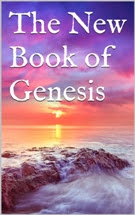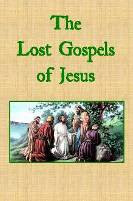With the exception of early King James Versions and some
Eastern Orthodox Versions, The Wisdom of Solomon also known as The Book of
Wisdom has been omitted from Bibles we find today.
Why is that? Is it not
scripture? Is the book forged? Was the book not from antiquity? Was the book
not written by an historical person? Does it not portray historical events?
Does it not portray those who have dedicated their lives to the Supreme Being?
Let’s take a look at these possible reasons and try to
figure out why The Wisdom of Solomon has been excluded and ignored for
centuries.
The Wisdom of Solomon was seemingly written somewhere between
two hundred years before Christ to the First Century after Jesus’ arrival.
According to many scholars, the book was written in Alexandria Greece
during this time.
However, like many ancient texts, there is also the
possibility that the book existed prior to this era, and perhaps was simply transcribed
from Hebrew to Greek. A Hebrew text version has not been found, however.
It is obvious from the text itself that this is a dedicated
follower of Moses and Solomon at the very least. There is also a distinct
possibility that the text
was originally written by Solomon. This possibility assumes the loss of the original
manuscript during the tumultuous times of the 10th Century BCE and
when the Greek translation appeared.
With regard to why the Wisdom of Solomon isn’t in more Bibles,
quite simply, the Protestant clergy did not accept this book as a canon – or
part of the Bible. Subsequently they called the book Apocrypha simply because
of the era of the book.
Apocrypha can have several meanings but it essentially
refers to books that were not part of the ancient collection of Hebrew texts.
They seemingly were written between the 2nd century BCE and the 4th
century CE. The question in this regard is whether those dates are when the
books were originally written, or whether they were written or passed down
orally previous to their subsequent recorded writing.
There is now clear evidence, for example, from the Dead Sea
Scrolls discovery, that books that were thought to have been written later in
Greek or otherwise, did have Hebrew versions prior. This includes the Book of
Enoch, which was found to have a Hebrew text older than later translations into
Greek.
Indeed, it is not as if none of the ancient Hebrew texts
have been lost or damaged in the many wars and fires that took place as the
Israelites and Judeans battled their opponents, sometimes losing and subjected
to expulsions and exoduses from their homelands. During these times of crises,
many of the ancient scriptures were lost to history.
This could certainly apply to the Wisdom of Solomon, because
after all, the text does reference historical events such as the Israelites’
escape from Egypt and the
crossing of the Red Sea. And there is
certainly a first person reference throughout the text that appears to refer to
Solomon.
Nonetheless, many scholars suggest that that the Greek
version of the Wisdom of Solomon was written a Century or two prior to Jesus’
arrival. They also suggest that the book was first written in Greek. Again, this
comes from the notion that a Hebrew version of the book has not been found.
As you will find, the text can be divided into three
potential parts. These include the reason for justice in human civilization;
the need and benefits of wisdom; and how wisdom played a role in the history of
the Israelites, especially during the time of Moses.
The book also documents a period of history when the Israelites
escaped the heavy handed rule of the Egyptians and were guided into the desert
and through the Red Sea as they were escaping the
Egyptian army.
Note that most translations utilize draft text, as though
this scripture was written as a historical ledger.
But it is obvious from the text is that this was written as
prose. Like much of the Bible, the test of the Wisdom of Solomon is a recording
of lengthy but beautiful prose.
This translation honors that approach and has attempted to
translate the text into a modern English translation of the prose.
So what does Solomon have to do with this chapter? Did Solomon
write it?
It does not seem to be a work of Solomon’s. But it could be
a contemporary of Solomon or someone dedicated to Solomon that wrote it.
Nonetheless, this text does illuminate the reality that
Solomon exemplified what is contained in these texts. And surely did indeed
follow the pledges made in this book with regard to honoring wisdom.
Just consider the following text after God asked what
Solomon wants:
“So give your servant
a discerning heart to govern your people and to distinguish between right and
wrong. For who is able to govern this great people of yours?” (1 Kings 3:4 NIV)
So we see that Solomon treasured wisdom. He could have asked
the Supreme Being for virtually anything. But he asked God for wisdom.
This is what this text is about: It is about putting wisdom
at the top of our goals when it comes to worldly achievements.
It is a lesson for all of us as we seek guidance in a
confusing world.
skip to main |
skip to sidebar
Ancient scriptures not included in many Bibles, nearly forgotten for thousands of years, plus some key texts, all translated to modern English from ancient Hebrew and Greek texts.
Copyright © 2025 Forgotten Books of the Bible Anonymous. You may copy and share or republish these texts without modification,
as long as you provide the link to this website.



